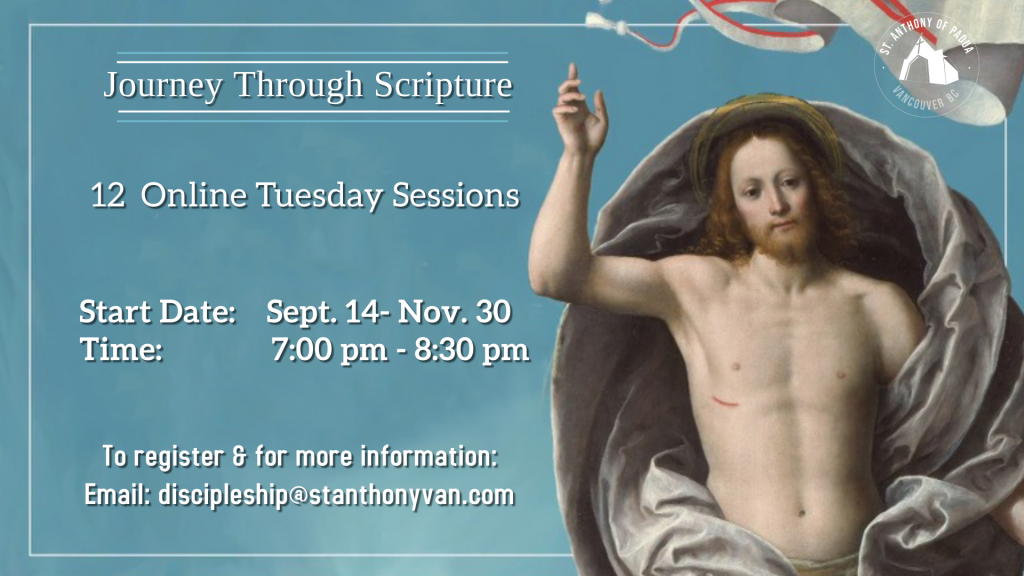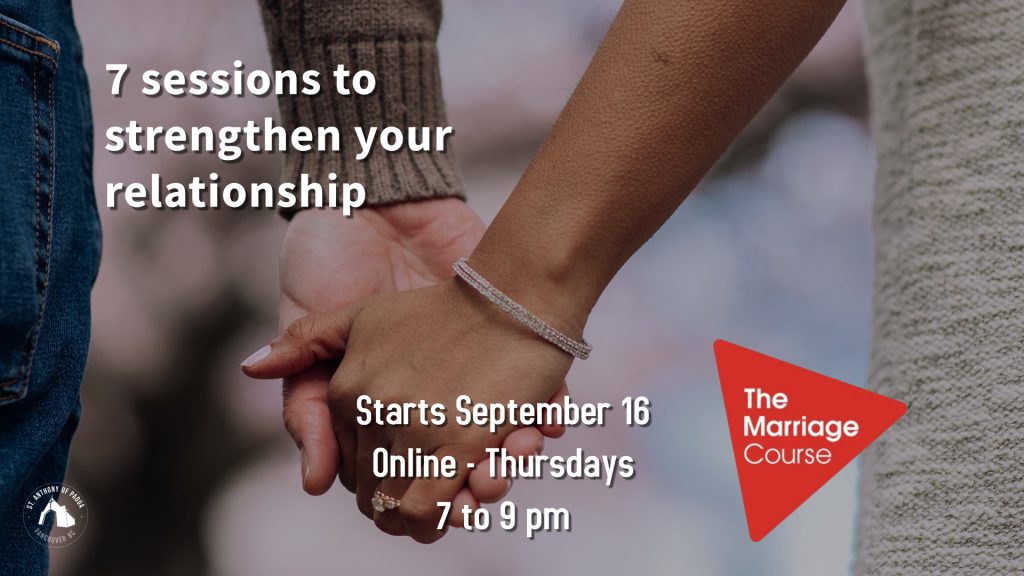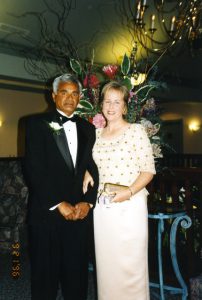Let me get right to the point today: Whatever’s bothering us, or is on our mind, has made the day or week hard, don’t focus on that. Jesus wants us to look at ourselves instead. Other people aren’t our problem, we are. If something is stealing our happiness, that’s our choice.
The key word in the Gospel today is ‘defile.’ The Pharisees and scribes believe that eating with unclean hands defiles a person, making them ritually impure so that they can’t worship God.
[Watch Fr. Justin’s homily delivery here.]
This is analogous to what we sometimes think: I can’t pray because I’m too tired and too busy; fatigue and busyness have defiled me. I’m angry because my spouse, children, parents are so _______–they’ve defiled me. It’s so hard to live life because of COVID—COVID has defiled our situation.
So, what has defiled us recently?
“Then Jesus called the crowd again and said to them, ‘Listen to me, all of you, and understand: there is nothing outside a person that by going in can defile them, but the things that come out of a person are what defile them. For it is from within, from the human heart, that evil intentions come: fornication, theft, murder, adultery, avarice, wickedness, deceit, licentiousness, envy, slander, pride, folly. All these things come from within, and they defile a person” (Mk 7:14-15,21-23).
This message is so important that Jesus calls the crowd back so that all can hear it, and He tells us that we need to listen carefully to the following teaching: There is nothing outside of us that can defile us: not the people with whom we live or work, not our situation.
Consider that Jesus and Mary were never defiled. No matter what happened to them, they were always united with God the Father. When Jesus was being tortured and on the Cross, He and Mary were never defiled.
Suffering can’t touch our closeness to God the Father. It can put pressure on it and make it hard to stay close. But that which unites us to God is what? Love. And love comes from the inside.
‘The things that come out of a person are what defile them. For it is from within, from the human heart, that evil intentions come.’
Aleksandr Solzhenitsyn famously wrote, “If only there were evil people somewhere insidiously committing evil deeds, and it were necessary only to separate them from the rest of us and destroy them. But the line dividing good and evil cuts through the heart of every human being” (The Gulag Archipelago, 168). This comes from a man who spent eleven years as a communist prisoner in the Soviet Union. It would have been easy for him to blame his circumstances for his life and declare that he’s innocent and the Marxists were evil. But, he was aware that there’s good and evil inside all of us.
Many people in our culture constantly blame others. If only the people in Canada who cause all the problems would change, then things would be better. Someone reminded me of how some people have a victim mentality: They act helpless, it’s never their fault, they predict doom and gloom, and exaggerate misfortune. But that’s a lie.
Jesus then gives twelve examples of evil that come from our hearts: six sinful acts and six sinful dispositions: ‘Fornication [this means any sex before marriage], theft, murder, adultery, avarice [or greed], wickedness [I looked everywhere and couldn’t find what specific sin this is referring to], deceit [lying or tricking others], licentiousness [shocking indecency], envy, slander, pride, folly [being foolish].’ And He reminds us that these are choices that defile us.
This teaching is life-giving! Whenever I read these words of Jesus, my attitude and heart change, and then I smile.
But, Jesus gives us something even better, and that’s a new heart. What defiles us are our moral choices, so we need a moral solution, and that’s God’s mercy and forgiveness. The greatest gift Jesus gives us is not His teaching, but His love and forgiveness, which give us a new heart!
I want to invite you again to sign up and invite others for the spiritual growth programs we have in September 2021. A few people asked: Wow! There are so many. Which do I choose? Choose whatever will help you and others grow. The reason why we have so many is because our parish has reached a level of maturity where we can offer different programs at the same time, because people have different needs. Having different programs is something to celebrate!
1) So, first we have Alpha. This is to explore faith. And it’s a great way for people to encounter Jesus’ teaching without pressure. Do you know anyone searching for more in life? The human heart is looking for Jesus’ mercy.
2) Faith Studies is for those who want to get closer to Jesus’ heart. Changing ourselves often happens in conversation with other people. Faith Studies provides guided discussion for this inner growth.
3) Journey Through Scripture is to understand the Bible better.
4) Finally, The Marriage Course is to enrich marriages.
I’m asking you to think most strongly about inviting people to Alpha and The Marriage Course, because we’re good at nourishing ourselves, but don’t think much about other people’s spiritual welfare. So, in the next few weeks, could we pray and think about whom to invite to Alpha and The Marriage Course, please? Thanks, everyone!
Jesus’ teaching on what defiles us is very rarely heard today, and I’d ask you to reflect on how our culture embraces or rejects His teaching. For example, in July 2021, during the height of the church burnings in Canada, Harsha Walia, Executive Director of the BC Civil Liberties Association, tweeted, “Burn it all down”. When people rightfully criticized this comment, one person defended her, “As usual Canadian whiteness is gleefully tone-policing and harassing a powerful, racialized woman from telling the truth”. This woman blames external forces, racism, for the criticism, but, in fact, people were criticizing Walia’s comment.
People should fight against racism, but you can’t blame racism for everything bad that happens in your life, especially your own freely chosen comments. But this is happening more and more in society: blame the government, the patriarchy, religion, etc., while there’s never talk about fixing our own hearts. It’s good to fix corrupt systems, but where’s the talk about fixing the human person?
This is Uncle Kieth (he spells it this way) Baggoo. He married my aunt in 1963, and some people wouldn’t rent to them because of his skin colour. But, let me tell you why my whole family admires him: He endured racism but rose above it. I’ve known him my whole life and he is a man of dignity and class, and shows no bitterness or resentment. He and Auntie Elizabeth fought against racism in their lives but never let it defile their hearts. Do we hear stories like this today? Do we celebrate rising above evil?
He married my aunt in 1963, and some people wouldn’t rent to them because of his skin colour. But, let me tell you why my whole family admires him: He endured racism but rose above it. I’ve known him my whole life and he is a man of dignity and class, and shows no bitterness or resentment. He and Auntie Elizabeth fought against racism in their lives but never let it defile their hearts. Do we hear stories like this today? Do we celebrate rising above evil?
In 2003, Uncle Kieth told me, “Justin, if you become a priest, I’ll become Catholic.” “Okay,” I said. But Auntie Elizabeth said, “Oh, he’s just saying that.” However, in 2014, he was baptized. I bring this up, because, as virtuous as Uncle Kieth is, he still needs a saviour, as we all do, someone to purify the sins of his heart. Do you know anyone in your life like Uncle Kieth that needs Jesus, too? We have an opportunity to invite them!
I finish with a quote from Catholic author, Matthew Kelly, which is always like balm for my soul whenever I read it: “Changing the world is an inside-out job. When we look to change the world, too often we look outside ourselves. When God looks to change the world, he looks deep within us, driving straight to the heart of the matter: human behaviour” (The Four Signs of a Dynamic Catholic, 143). By changing ourselves, nothing can defile us.






